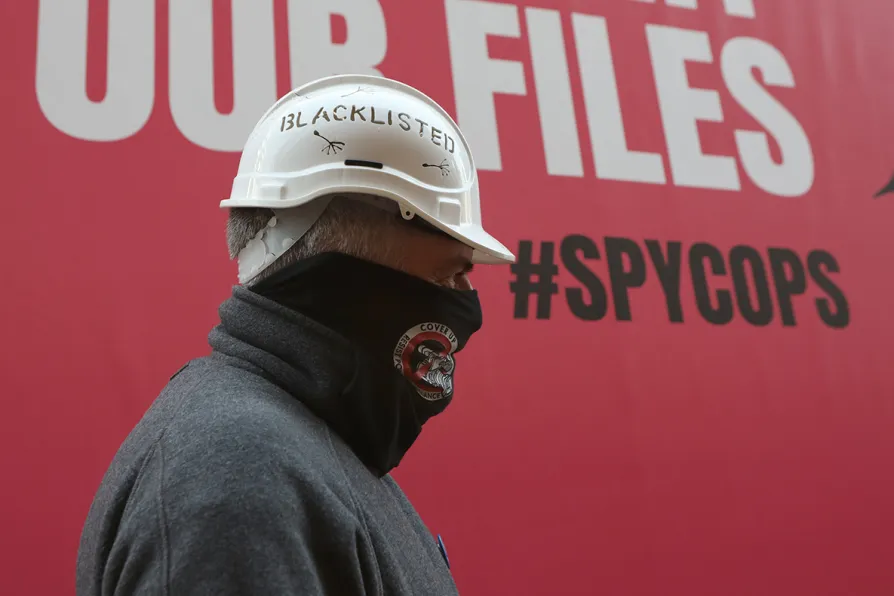
 Demonstrators outside the Amba Hotel at Marble Arch, London, where the Undercover Policing Inquiry are holding hearings
Demonstrators outside the Amba Hotel at Marble Arch, London, where the Undercover Policing Inquiry are holding hearings
by Bethany Rielly
AN UNDERCOVER officer was authorised by senior police to lie in court after being arrested and charged with public order offences at an anti-apartheid protest, the spycops inquiry heard today.
The officer, who used the cover-name Michael Scott, was told by managers to use his fake identity during the trial in order to bolster his credentials among campaigners.
He was convicted under his false name for public disorder.

Former judge ANSELM ELDERGILL examines the details and controversy of Lucy Letby’s trial and appeal in the context of famous historical wrongful convictions that prove both the justice system and legal activists make errors

BEN CHACKO reports on the struggles against sexism, racism and the brutish British state that featured at Matchwomen’s Festival this year












